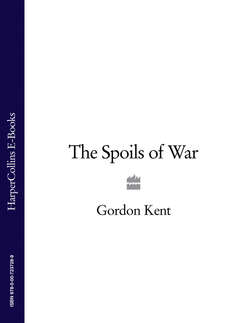Читать книгу The Spoils of War - Gordon Kent, Gordon Kent - Страница 11
Gaza
ОглавлениеBoth the colonel and the woman had left the room. Alone, Rashid cried a little, silently, straight-backed. He had feared this very thing, that Salem was dead, when he saw Saida’s apartment. And now it was proven true.
The woman brought him tea, and he drank it. The colonel came back with Rashid’s backpack and placed it on the table with a plastic zip-lock bag that held the contents of Rashid’s pockets when he was taken.
When they started again, their tone was different, as if he had passed a test and now they were all on the same side. They asked him questions, hundreds of them, and he answered as best he could; about Salem, about Hamas and their interest in the dig, about the dig itself at Tel-Sharm-Heir’at.
They gave him food. They didn’t ask anything about the man he had hit with the hammer.
After several hours, Hamal appeared satisfied. It was Zahirah who was still interested in the dig and everything about it, so it was Zahirah who asked the question that changed everything.
She asked, “Where were you for the last twenty hours? Why were you coming back to Gaza?”
And Rashid told her. He was past concealment, except where he tried to cover his act of violence at the dig. He told them about hiding in the old ruins under his home town of Acco. And he told them about going to Saida’s apartment. And eventually, he told them about the flash card he had found in Salem’s coat.
They brought in his belongings. He showed them the card.
Hamal lit another cigarette. “Who else had been in her apartment, Rashid?”
Rashid shrugged. “It was all pulled apart,” he said slowly. “Everything ruined.”
And Hamal raised his eyebrows at Zahirah and said, “Hamas.”
Zahirah nodded, and then turned back to Rashid. Her voice was especially gentle, almost tender. “Who is this Saida?” she asked.
After a moment Rashid said her surname. “Frayj. Saida Frayj. She—Salem.” He stopped in a conflict of desire to incriminate and desire to protect. While he struggled to find words, his interrogators exchanged glances.
Hamal left. Zahirah stayed, asking questions about the dig, about the stone structure, about how long Salem had been interested in it. Rashid tried to be careful. They could be lying; Salem could be in a cell just under Rashid’s feet. He tried to cover Salem; he told Zahirah that Salem had only just found the stone structure.
“Do you know what it is, Rashid? That stone structure?” she asked.
“A tomb?” He knew what Salem had said about it. He didn’t want to betray too much.
“A very particular type of tomb, Rashid. A tholos tomb. A stone chamber made by Greeks and no one else.”
“Oh,” he said, trying to sound surprised.
Then Hamal returned with a laptop computer. He turned it on, inserted the card, and in a minute he had the card opened. He and Zahirah crouched over the screen, which was hidden from Rashid by the angle.
“There we go,” Hamal said.
Then he laughed. Zahirah turned her face away.
Hamal began to stare intently. He swore. “Zahirah, look at what she’s holding. Look at it!”
The woman did as she was told. She breathed in sharply, leaned forward, reached forward to touch the screen. The vivid colors on the screen lit her face, so that she looked younger and more mysterious to Rashid. She played with the keyboard, spun the screen so that Rashid could see the image.
On the screen was a naked woman, her breasts prominent and glossy in the harsh light of the camera’s flash. She was handsome, her features strong, her nose long and fine, her eyebrows heavy and black, and her eyes were filled with reflected light. They glowed red at the centers. She was smiling.
Saida, the slut.
In her hands was a two-handled cup. It was gold.
“Do you know this woman?” Hamal asked him.
Rashid spat, “Saida.”
“This came from her apartment?” Zahirah asked.
“Taken inside the tomb,” Hamal said. “Look, here and here. Those big stones—you can see where the flash just shows them.”
They both looked at the image, and then the next, and then more, often turning the screen for Rashid to answer questions; Saida in jewelry, Saida holding a dagger, Saida with the cup again, Saida with a bottle of champagne.
Rashid became angrier and angrier. He did not tell Hamal that he had seen a canvas bag full of these things in the car—that would have been betrayal. But he didn’t hide that Saida was a greedy girl who his own mother called a slut and a whore, who was not Muslim but a Christian from Bethlehem, and who always wanted money and good times.
They both listened intently to his anger and his enmity. In the end, he ran down like an old battery, his sentences more disconnected, his gestures subdued, until Colonel Hamal rose to his feet and Zahirah patted his hand.
They took the computer and left.
